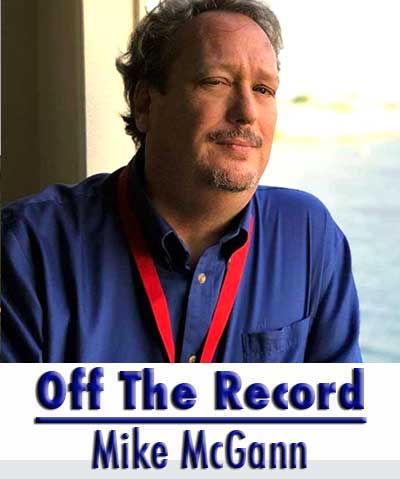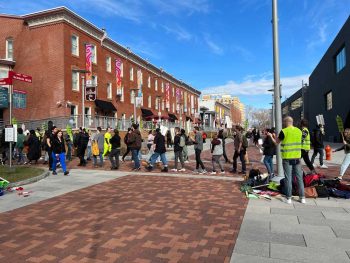By Mike McGann, Editor, The Times @mikemcgannpa
 Pennsylvania has a funding problem. Yes, right now, there is a budget surplus, but for decades state government has slowly been starving essential services such as police, education and roads/infrastructure.
Pennsylvania has a funding problem. Yes, right now, there is a budget surplus, but for decades state government has slowly been starving essential services such as police, education and roads/infrastructure.
There are a lot of issues — too many loopholes and tax exemptions for corporations (a shocking number of profitable companies pay nothing in tax), a flat tax for residents, just for starters — but generally the cause has been elected officials who are quick to do deals to slash corporate taxes and a general unwillingness to ever raise taxes.
Now, after a court ruling on K-12 education funding, the commonwealth is at a crossroads. If it complies with the court ruling, it is going to have to infuse public education with a lot of money — or, as other states have done in the face of similar rulings, either ignore it or slow play doing anything about school funding.
The share of funding for public schools — despite numerous state mandates requiring increased spending in areas such as special education — has dropped from about 50% to about 31% since 1980. Pennsylvania is generally considered to have one the most underfunded public school systems in the nation — putting the burden for education on property owners.
Similarly, we massively underfund our state universities — a crisis being highlighted right now by the strike of Teaching Assistants at Temple University. These grad students are being paid about $19,000 a year — literally an unlivable wage. Temple is also among the bottom of major research universities – 137 schools labelled R1 — in funding education.
Although there were published reports that the strike had been settled Friday, social media posts appeared to put that in question.
Full disclosure: both my kids attend TU — as do a number of folks from Chester County.
Yes, Temple has to spend a silly amount of money on security — the Philadelphia Police Department seems to have largely given up on seriously patrolling large portions of the city, including the North Philly campus area — but the greater root cause of this fight is more than a generation of declining (in terms of percentages of expense) state funding.
While I think Temple has done a terrible job in terms of dealing with the strikers — cutting health insurance, bringing in scabs, and threatening those with visas, among other things — the university has limited options when it comes to proper funding. I do think new TU President Jason Wingard should face hard questions about how he has handled the strike.
I also note that suburban parents should pause at the thought of sending their kids to TU — if this is how they’re going to treat grad students, how will they treat your undergrads?
Not all of Temple’s issues come from state funding shortages — the university has struggled with management for decades. I’ll agree, that like most universities in Pennsylvania, the school over spends on administration and probably has built too many new buildings in recent years.
But at the root, Republicans have worked for more than a generation to starve public schools and public universities, in part because of campaign cash from those who would stand to profit from both failing.
But the funding crisis doesn’t end there.
In truth, we can’t pave our roads, we’re struggling to cover the cost of first responders, we don’t fund schools properly.
In short, Republicans have turned Pennsylvania into a third-world state — doing the bidding of big corporations and rich people.
Our tax laws are nuts. Yes, we have a high business tax rate — but most big companies don’t pay because a bevy of tax exemptions and the asinine way that tax is calculated (in most states, if a company does 6% of its business in a state, it pays taxes on 6% of its overall income, but in PA it ends up being a far lower total). And consider this: according to estimates, more than 70% of big companies pay no taxes to the commonwealth. None.
Most of the nasty tax rate (which is being lowered) falls on small businesses. While it is good to lower the burden on small business, it means a loss of at least $450 million in tax revenue annually.
This is unsustainable. Large corporations must be forced to pay their fair share and finally take the burden off homeowners and small business.
Another issue: a flat income tax. I’ve been arguing for 20 years Pennsylvania needs a graduated income tax — the idea that a billionaire (and yes, we have some in Chester County) pays the same rate of income tax as those striking teaching assistants is ridiculous.
We need to get serious about revenue and stop letting those most able to contribute — and arguably those who have benefitted greatly from public services — off the hook.
It’s time for the state legislature to get serious about real tax and revenue reform.





